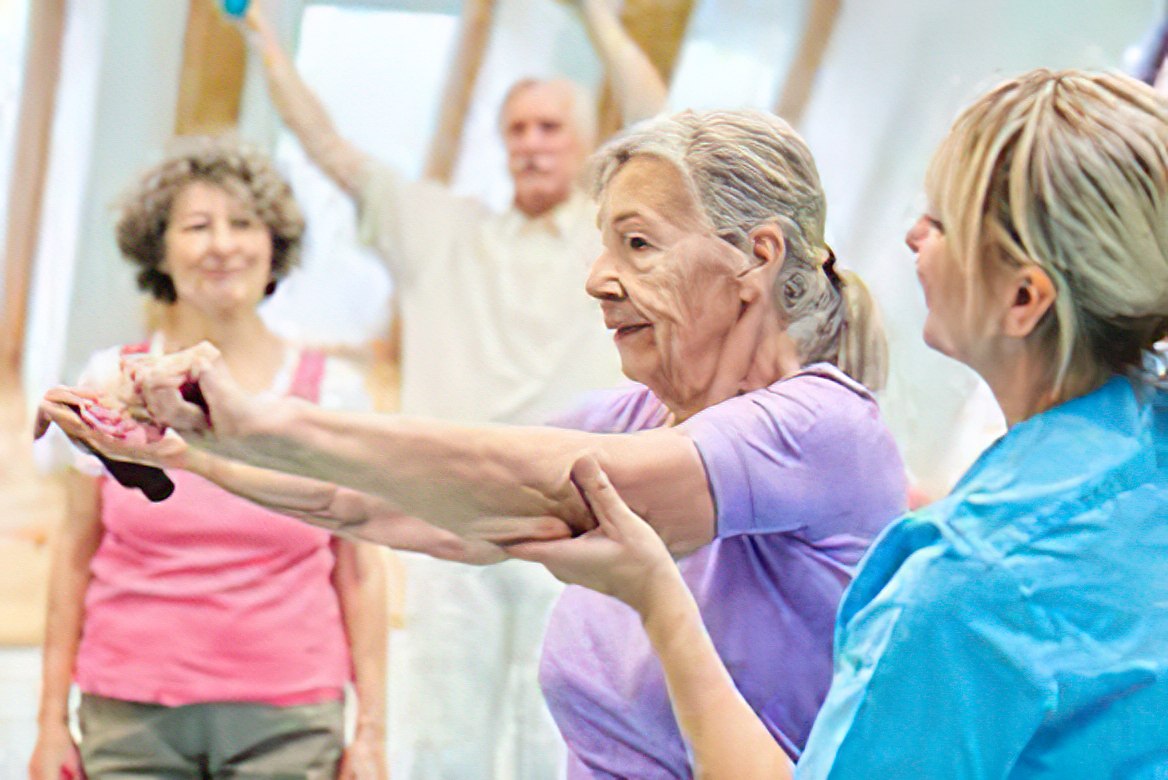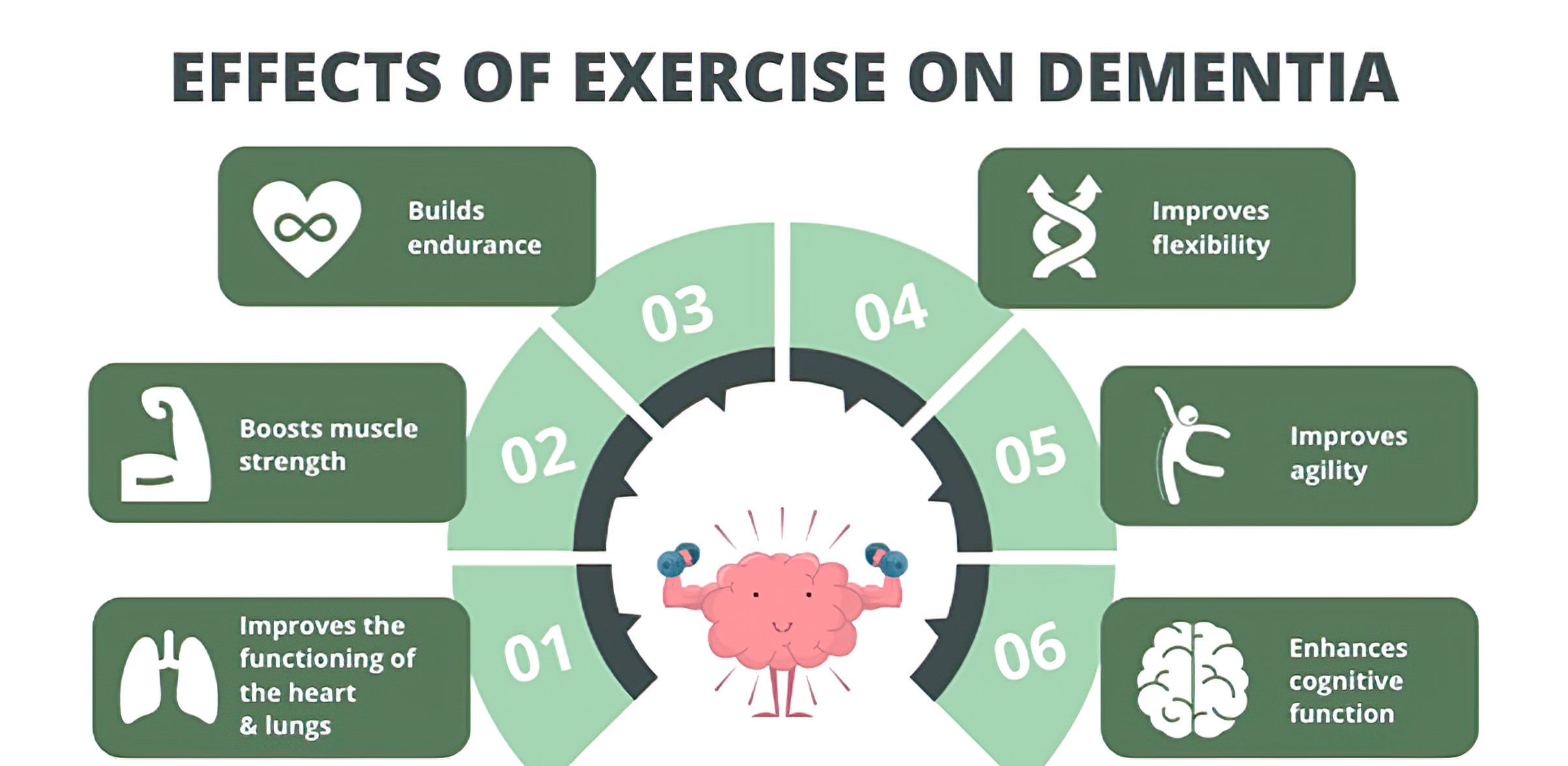Exercise Physiology Adelaide and Dementia
Home / Exercise & Dementia
How does Exercise help people diagnosed with Dementia?
What is Dementia?
It is important to understand Dementia is not one specific disease but rather an umbrella term used to describe a collection of symptoms that result from disorders affecting the brain. It can cause a progressive decline in a person’s functioning and affects memory, cognition, behaviour, and the ability to perform daily tasks. Most people with dementia are older however it can happen to anybody. Dementia is more common after the age of 65 years however it is important to understand that dementia is not a normal part of aging and that not all older people get dementia.
What are the early signs of Dementia?
It is common for most people to forget where they parked their car while at the shops, or their new co-workers name – however, this does not mean you have dementia. Most people from time to time have memory lapses, but dementia is more than just about simple memory mishaps.
The early signs of Dementia are very subtle and may not be immediately obvious. In addition to progressive and frequent memory loss some other common symptoms may include:
- Confusion about places, people, and events
- Problems with communication and speech
- Personality changes and changes in mood
- Focus and concentration
- Reasoning and judgement
- Apathy and withdrawal from social settings and daily tasks
- Loss of ability to perform everyday tasks and tasks that were once easy (e.g., cooking, cleaning, washing etc.)

What are the causes of Dementia?
There are many different forms of dementia, and each has its own causes.
The most common types of dementia are:
- Alzheimer’s Disease: the most common form of dementia. It is a progressive degenerative illness that attacks the brain and causes a gradual increase in cognitive (memory and thinking) problems.
- Vascular Dementia: the second most common form of dementia associated with disease in the blood vessels of the brain caused by multiple strokes. This blood vessel disease affects the circulation of blood to the brain and causes damage.
- Dementia with Lewy Bodies: Lewy body disease is an umbrella term that describes conditions characterised by the formation of clumps in the brain called Lewy bodies. The clumps build up in brain cells and occur in specific areas of the brain, causing changes in movement, thinking and behaviour.
- Fronto-Temporal Lobar Degeneration (FTLD): involve degeneration in one or both of the frontal or temporal lobes of the brain which are involved in mood, social behaviour, attention, judgement, planning and self-control.
- Huntington’s Disease: an inherited degenerative brain disease that is characterised by irregular involuntary movement, slurred speech, psychiatric symptoms, and cognitive decline.
- Alcohol related dementia (Korsakoff’s Syndrome): Too much alcohol can lead to irreversible brain damage. Alcohol abuse can cause impairments in many different brain functions including those used for memory, planning, organising, judgement, social skills and balance. This type of dementia is preventable.

Why Is Exercise Important for people living with Dementia?
Physical exercise is an important part of a healthy lifestyle. People who exercise regularly are less likely to experience heart disease and stroke and reduce their risk of high blood pressure, type 2 diabetes, and obesity, all of which are risk factors for developing dementia.
Several studies have found that higher levels of physical activity in early, mid and late life is associated with a lower risk of cognitive decline and dementia in older people. Other studies have found that people who exercise experience a slower loss of brain tissue as they age. Regular aerobic exercise of at least 30 minutes has been found to be beneficial for cognitive health. It is believed that exercise maintains adequate blood flow to the brain, reduces cardiovascular risk factors and may stimulate nerve cell growth and survival. Research has also shown that exercise is associated with reduced levels of beta amyloid – a protein that forms plaques on the brain and is currently thought to be the main cause of Alzheimer’s Disease. Research has not only shown a role for exercise in reducing the risk of developing dementia but also the benefits it offers to people with dementia. It can help to improve quality of life, slow down the disease progression, and improve physical function and health.
Studies have looked at middle-aged people and the effects of physical exercise on their thinking and memory in later life. Results showed that regular exercise can significantly reduce the risk of developing dementia by about 30% and for Alzheimer’s disease, the risk was reduced by 45%. Regular aerobic exercise has also shown to improve the performance of healthy adults on thinking tests. A month or more of regular aerobic exercise resulted in improvements in memory, attention and processing speed when compared with regular non-aerobic exercise such as stretching.
What Type of Exercise Is Best for those living with Dementia?
For general physical health, research has shown that three types of exercise should be included in your regular routine:
- Sustained Aerobic Exercise: exercise performed at a moderate level of intensity over a long period of time. It improves general physical health and increases blood flow to the brain. At least 30 minutes of aerobic exercise on most days of the week is recommended. Examples include brisk walking, dancing, jogging, swimming.
- Strength, Weight or Resistance Training: involves exercising muscles against an external force that provides resistance to the movement such as using resistance bands and lifting weights. The benefits of strength training include increased muscle, tendon and ligament strength, bone density and postural support. It also increases testosterone levels, which can help to protect brain cells and preserve cognitive function.
- Flexibility and Balance Training: involves exercises that strengthen the spine and supporting muscles and improve coordination and balance. Examples include tai chi, yoga and Pilates which can all help with flexibility and balance.
What are the Benefits of Exercise for People with Dementia?
Exercise can give many health benefits including:
- Improved mood
- Better sleep
- Maintaining mobility long term
- Maintenance of motor skills
- Reduced risk of falls because of improved strength and balance
- Reduced rate of disease-associated mental decline
- Improved memory
- Preventing co-morbidities associated with high levels of inactivity
- Reduced levels of stress, anxiety and depression
- Better communication and social skills

How can an Inertia Exercise Physiologist help people living with Dementia ?
Our exercise physiologists complete a comprehensive assessment to develop a safe and individualised exercise program based on your conditions, current functional abilities and needs. Here at Inertia, we offer a range of services including gym-based exercise therapy, home based exercise therapy, home visit services and group sessions that can aim to reduce the risk or delay the onset of dementia.
References
Alzheimer’s Society 2022, Physical Exercise and Dementia, viewed 22/03/2022,
<https://www.alzheimers.org.uk/about-dementia/risk-factors-and-prevention/physical-exercise>.
Better Health Channel 2021, Dementia Activities and Exercise, Victoria State Government, viewed 22/03/2022,
<https://www.betterhealth.vic.gov.au/health/conditionsandtreatments/dementia-activities-and-exercise>.
Dementia Australia 2015, Physical Exercise and Dementia, Dementia Australia, viewed 22/03/2022,
<https://www.dementia.org.au/sites/default/files/helpsheets/Helpsheet-DementiaQandA08-PhysicalExercise_english.pdf>.
Dementia Australia 2020, What is Dementia, Dementia Australia, viewed 22/03/2022,
<https://www.dementia.org.au/about-dementia/what-is-dementia>.
